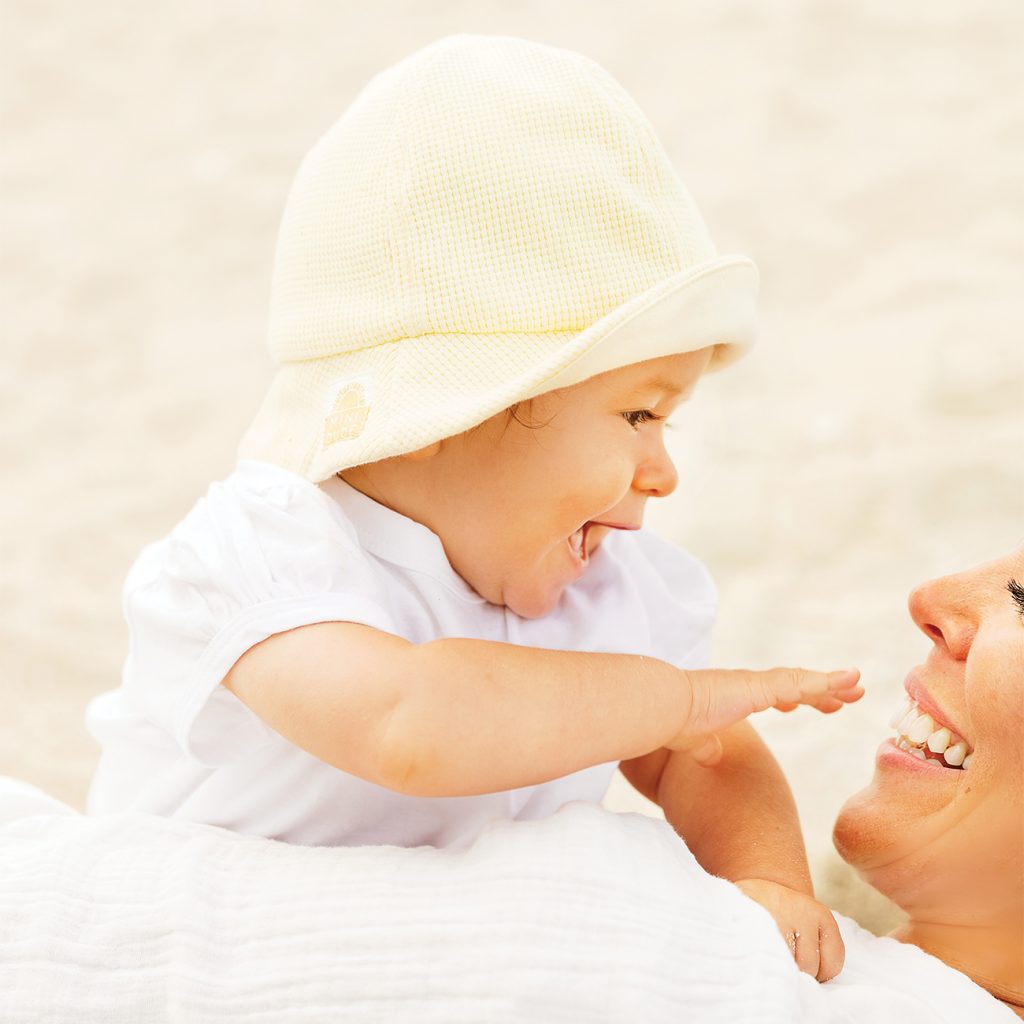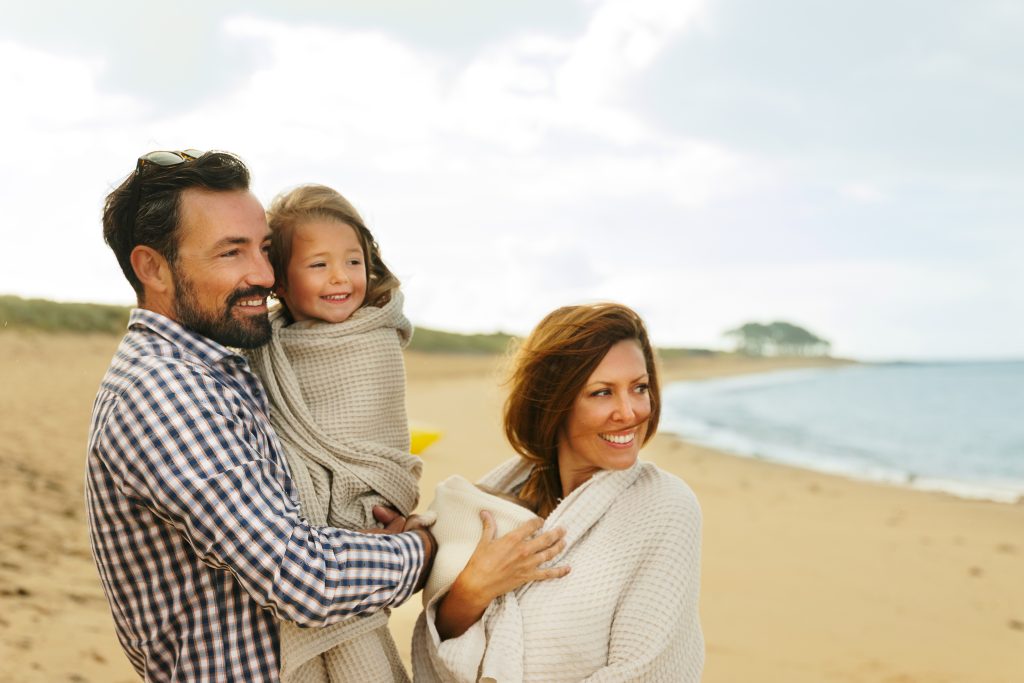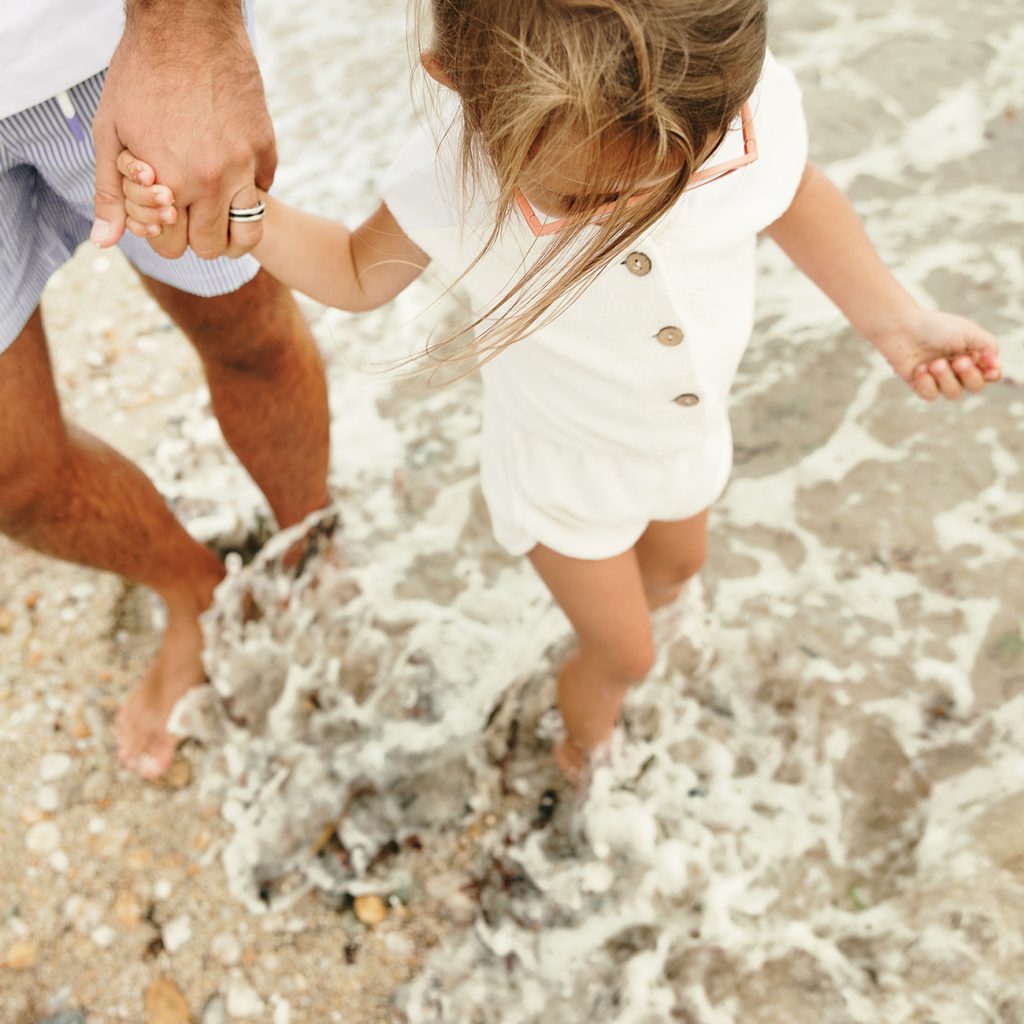Taking your child to the beach and watching him or her discover the sand, swimming and playing on the beach are priceless pleasures. To enjoy these moments in complete safety, it is important to protect your child’s skin from the harmful effects of the sun.
Let’s look at the good habits to adopt when you take your baby to the beach.

Why is a baby’s skin so fragile?
A baby’s skin is special: thin and sensitive, it is very vulnerable to ultraviolet (UV) radiation. Why is this? Because it is immature and melanin production is not yet operational. As a result, the skin is less resistant and more permeable to aggression. The facts are now well documented: the damage caused by the sun in a baby or a young child can have consequences in adulthood. Basically, everyone has a sun capital at birth. This capital is all the more impacted when the skin barrier is attacked at a young age, because it is at this period that it is the most fragile and lacks resistance.
Beware of the dangers of the sun, salt and wind cocktail
The beach is an ideal environment for a small child to discover, explore and awaken all his senses. Several environmental factors can come together: the sun of course, but also the salt in the water and possibly the wind. The accumulation of the 3 factors must lead to the greatest vigilance for the comfort and health of your child.
The sun
The sun represents a real danger for your baby’s skin. It is imperative to protect it from UVA and UVB rays whatever the time of exposure. The 11am to 4pm time slot is the most inadvisable as it is during this time that the sun’s rays penetrate the skin most strongly. In any case, the ideal is to organize a small shaded area to avoid excessive exposure to the sun. In the case of a toddler, it is essential to avoid sunburns, which are 1st degree burns. It should be noted that babies with dark skin should also be covered with a sun cream.
Salt
Salt is an irritant for your baby’s fragile skin. After swimming in the sea, it is advisable to rinse your child with clear water to remove the salt from his skin. Many beaches are equipped with showers. If not, do so as soon as you get home.
The wind
Let’s face it: the wind is like a little traitor. It feels good and refreshing but it hides the feeling of heat. It is in these conditions that the famous sunburns can appear. The same goes for clouds: even a cloudy sky at the beach lets the sun’s rays through.

What other precautions should I take when taking my baby to the beach?
Protective clothes
Baby’s beach attire always includes a hat and a long-sleeved shirt (with UV-resistant fabric if possible). Choose light-colored, loose-fitting clothing to protect your baby’s body.
Good sunglasses
Just like his skin, the sun can damage your child’s eyes which are particularly fragile. When choosing sunglasses, there are two criteria to consider: the strength of the anti-UV filter in the sunglasses and the shape of the glasses, which must cover the side of each eye.
Well make him drink
Even if this advice is not related to beach equipment, it is surely useful to remember that
that young children dehydrate quickly. Despite the exciting discoveries they make at the beach
the beach, it is important to make sure they drink regularly.
The essentials for choosing a good sunscreen
Only very high sun protection, with a sun protection factor (SPF) greater than 50, provides the best protection for your baby’s delicate skin and offers an effective barrier to UVA and UVB radiation. It should not contain any ingredients that are controversial for babies and should be water resistant. For this, you must check that the label of the ingredients of the solar product does not display oxybenzone, octinoxate, paraben, perfumes, phthalates… Each of these substances can indeed be irritating or allergic as well as polluting for the oceans, in particular. The formulation of the cream must be without risk for the skin of your baby, made of the most natural ingredients possible. Choose products that are easy to spread for a pleasant touch, i.e. not sticky or greasy. Finally, applying a fluid after-sun lotion after a shower or bath will gently moisturize and soothe the skin after exposure.

